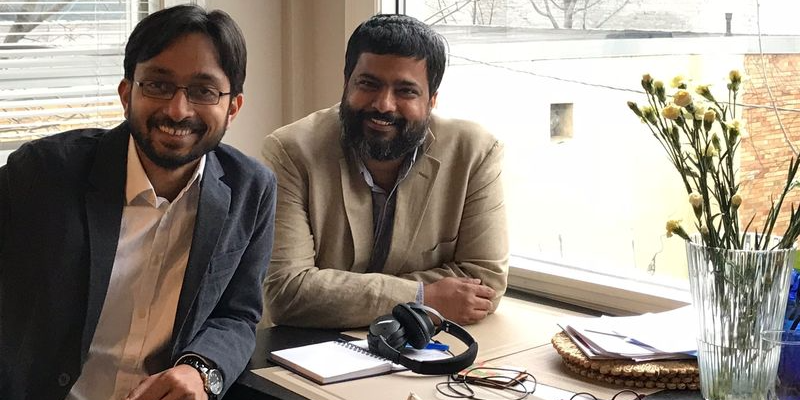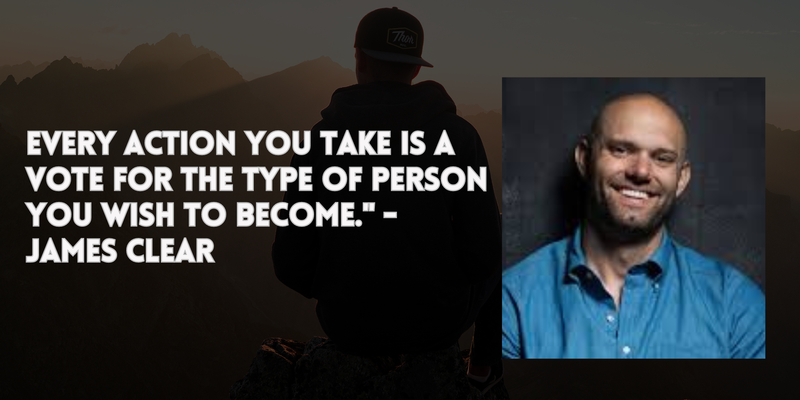IIT alumni's startup has built a ‘Google Map for scientists’ to help in drug discovery
Elucidata uses data science to reduce the time taken to discover life-saving drugs, impacting human lives significantly. The startup has offices in India and the US.
One of the greatest wonders of the 20th and 21st centuries has been the advancement of medical science. It is no secret that our generation will live longer than our ancestors’ because medical science has not only helped eradicate several fatal diseases, thereby increasing average life expectancy in humans, but has also improved the quality of life.
And, this has been made possible by scientists and researchers who spend tireless hours in discovering life-saving drugs. However, drug discovery is a complex, costly, and long-drawn process. It is also plagued with uncertainties because one never really knows if a drug would succeed during patient trials or not.
Add to that the rise in ageing populations, the widening spread of chronic diseases, and the growing demand for “personalised medicine”... drug discovery is perhaps more challenging than ever before. This possibly explains the high R&D spending made by pharmaceutical companies.
But, experts reckon that Big Data and technologies like AI and machine learning will make a significant impact in the drug discovery process going ahead. A 2017 report by McKinsey pegs this as “a $100 billion opportunity” worldwide.
Elucidata, founded by Swetabh Pathak (IIT-D) and Abhishek Jha (IIT-B), is one such startup riding the wave of data-led drug discovery. The Massachusetts-based startup uses data analytics and machine learning to ease bottlenecks in the process, and helps researchers take real-time decisions.
1557242563212.jpg?fm=png&auto=format)
Swetabh Pathak and Abhishek Jha, Co-founders, Elucidata
Data-led drug discovery
The startup has developed a cloud-based, data analytics platform known as ‘Polly’ for scientists looking to discover drugs. The platform helps analyse, visualise, and interpret vast amounts of datasets — 21,000 genes, 10,000 small molecules, and 30,000 proteins — to generate insights.
Elucidata claims that Polly is meant to disrupt traditional models of data analysis in drug discovery, and is already being sampled by top pharma companies of the world. The software works because biotech is one of the biggest data-churning industries. In fact, it is this data overflow that often cripples researchers.
They end up sitting on swathes of data or crunching them manually on spreadsheets, making the entire process slow and tedious.
This is what the founders set out to fix back in 2015.
Co-Founder Swetabh tells YourStory,
“There was so much biochemical data being generated that scientists could not make sense of it anymore with their instruments. That was our first motivation. To put it simply, we are a Google Map for scientists to help them detect diseases."
He further explains, “We intervene in the identification of the disease, and help reduce the drug discovery timeline by a month or sometimes more. It is same as Google Maps showing you the fastest route from Point A to Point B. We do that at a cellular level by capturing activities of the gene.”

Polly operates on a conventional SaaS model.
Polly is enabled with interactive tools, pathway visualisations, and an interpretation dashboard with machine learning capabilities that help scientists and researchers address questions in real time. Every month, close to 1,000 metabolomic (molecular) datasets are uploaded on Polly by scientists.
A molecular research professor from Yale University says the platform’s utility lies in the fact that it can “help accelerate discovery in ways not possible through the current lab-to-lab or individual-to-individual coordination practices”.
Also Read: When scientific innovation merges with humanity, it can solve any problem: Anand Anandkumar
Operations so far
Swetabh reveals that his co-founder Abhishek Jha, who’d earlier worked at Agios Pharmaceuticals (one of the largest biotech companies in the world), helped shape the vision for the startup. According to Abhishek,
“Data generation has been modernised, but data analysis is lagging. Elucidata aims to bridge this gap and eventually impact human lives in profound ways.”
The startup currently sources data from its 25+ pharma and biotech partners worldwide, including a few in India. Some of its global clients include Pfizer, IPSEN, and Inception Sciences. It is also exploring partnerships with IIT-Bombay and the Central Drug Research Institute (CDRI).

Drug discovery is a complex and tedious process. Startups like Elucidata reduce the time taken in it.
Last July, Elucidata raised $1.7 million in seed funding led by Boston-based Hyperplane Venture Capital along with several prominent angels from the Valley.
Swetabh says,
“The field of drug discovery is relatively smaller in India. The most exciting work is possibly happening in places like Boston and Cambridge (US). Since, we are a very cutting-edge company, we wanted to be ahead of the curve and explore how this kind of tech can be used globally.”
While Elucidata is headquartered in the US, where most of the data-led drug discovery takes place, it has an India office in New Delhi, and is planning to open one in Bengaluru. The startup operates on a conventional SaaS model and claims to be profitable for three years.
“The big focus now is to expand sales,” Swetabh says.
Elucidata’s 55-member team consists of engineers, data scientists, and biotechnologists. It is now looking to hire “disease experts” who can understand how a condition works at the molecular level and analyse that data.
Also Read: 3 Ways In Which AI Can Change Healthcare
Opportunities and challenges
Overall, pharma R&D is a $200-billion market globally, with digital contributing nearly 50 percent to it. “The future belongs to data and AI,” says Swetabh.
But, the sector is not devoid of challenges.
According to McKinsey,
“Biopharmaceutical R&D is a series of high-risk, high-investment decisions and the industry is facing a considerable productivity challenge in terms of identifying, testing, and bringing new drugs to market, especially in the context of the highly innovative therapies.”
This is why companies like Elucidata matter. In 20-30 years, the founders believe, the world would be looking at “personalised drug discovery” - unique medication for each living being based on their cellular activity.
Swetabh says, “The sector is nascent, but we’ll get to a point where cancer is more curable than it was 40 years ago, the average cost of treating diabetes will go down, new frontiers like mental health would also get affected.”
We hope we live to tell the tale!
Also Read: Meet 5 Indian startups you didn’t know were working on making cancer easier to diagnose








![[Weekly funding roundup April 20-26] VC investment dips as startups resort to debt capital](https://images.yourstory.com/cs/2/220356402d6d11e9aa979329348d4c3e/funding-lead-image-1669386008401.jpg)


